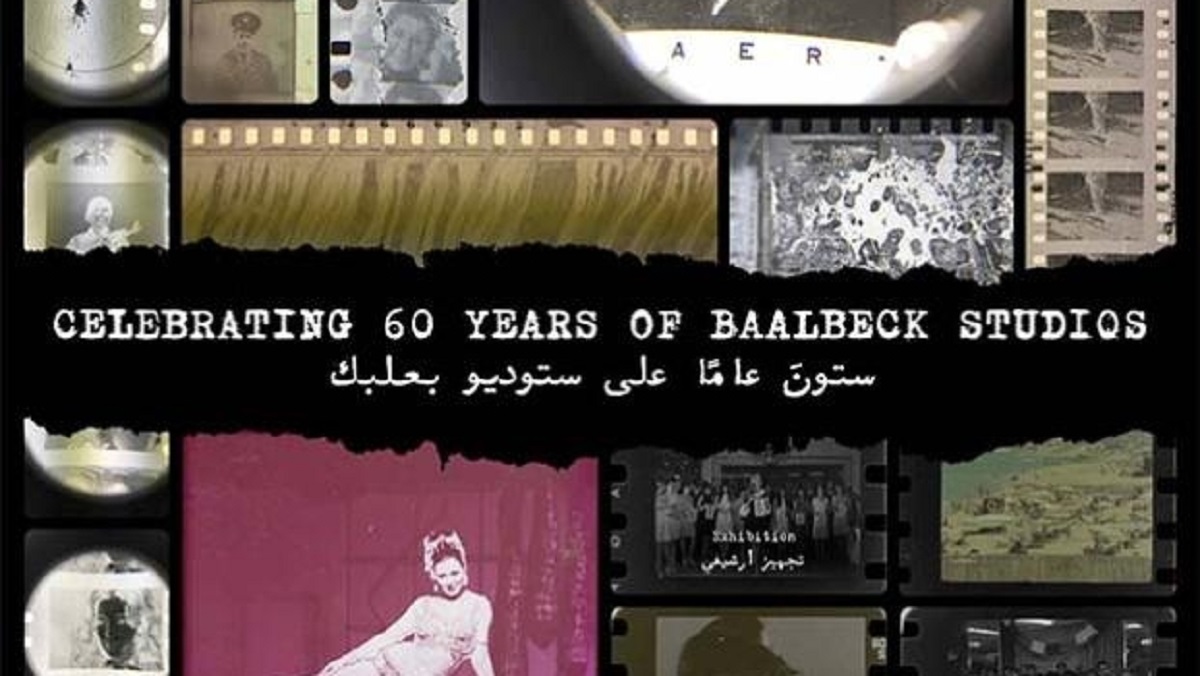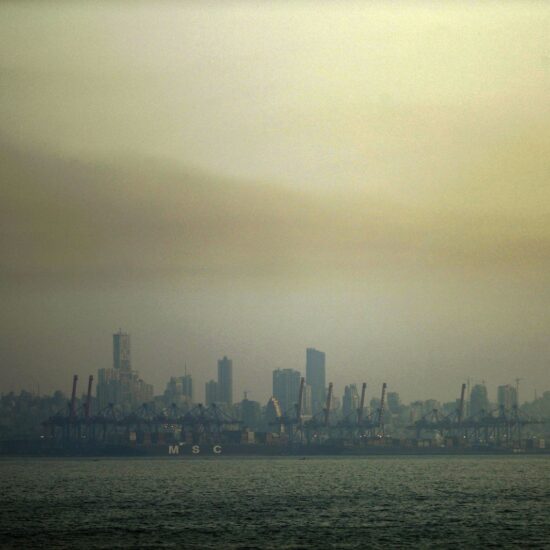
From 1963 onwards, Baalbeck Studios reigned supreme as the epicenter of auditory and visual creativity, not only in Lebanon but also extending its influence to countries such as Iraq, Syria, Kuwait, and Saudi Arabia. This esteemed sound studio served as a magnet for the crème de la crème of singers and voice-over artists, dispatching its talented engineers across borders for various projects. Directors, producers, and cinematographers alike relied on Baalbeck Studios for equipment rental and sought its expertise as a production laboratory. However, in 2010, UMAM D&R received distressing news of the imminent demolition of the historic Baalbeck Studios building in Sin el Fil. In a bid to salvage invaluable artifacts, UMAM D&R swiftly organized a rescue mission, prioritizing the retrieval of essential paper documents and film canisters.
Perched on Boulevard 166 in Sin el Fil, Beirut, Baalbek Studios stands tall as an emblem of Arab cinema’s golden age. Established in June 1962 by visionaries Badih Boulos and Joseph Beds, it served as a catalyst for the burgeoning Lebanese film industry, etching its mark on the cultural identity of the nation. Despite facing neglect from authorities, Baalbek Studio perseveres as a poignant reminder of Lebanon’s rich cultural heritage.
Furnished with cutting-edge technology and staffed by a dedicated team of professionals, Baalbek Studio was a breeding ground for artistic innovation. Its halls resonated with the melodies of Fairuz and hosted the creations of legendary composers like Farid al-Atrash and Abdel Wahab. Within its walls, the magic of cinema unfolded, shaping the narratives that defined an era.
Beyond its role as a mere studio, Baalbek stood as a beacon of creativity and resilience. Despite the passage of time, its legacy endures as a testament to the enduring power of Lebanese cinema and its profound impact on the region’s cultural landscape. Amidst the turbulence of Lebanon’s civil strife in the 1970s, Baalbek Studios faltered, struggling to maintain its once-thriving status. Despite efforts to revive it, the studio faced formidable challenges. Now, UMAM’s initiative aims to resurrect the archives, shedding light on Lebanon’s pre-war cultural richness.
Restoring history
According to UMAM’s co-founder Monika Borgmann, they have been searching for a long time for the possibility to digitize film material. After years of effort, they entered a partnership with the German film institution Arsenal, and they are on their way to digitizing the material. However, she highlights that they were only able to obtain the leftovers, which include some cut-out scenes that didn’t make it into the films.
This project has been a long time in the making and has included exhibitions in 2014 and 2013.
The biggest challenge they faced was gaining control of this material, understanding what the written material contained, and what film material they managed to save. They are now in the process of retrieving the digital material from Berlin, matching film archival with the written archive.
An interesting find, she says, “At the time when one went to the cinema, there were 5 to 10 minutes of news. We don’t have complete films; we have rough cuts, and what was really interesting was that you had these 5 to 10 minutes of news before the cinema started.”
She adds that to understand the life of this important company, one needs to delve into the written archives.
“In them, you can see all the ups and downs of the company and their vision. They wanted to be Hollywood in Lebanon and had plans to build studios in Monte Verde,” she said. “You don’t just see cinema history; you also see a huge part of the social and political history of the country.”
However, it was the civil war that halted the Hollywood dream. Several people working in Studio Baalbeck were in Sin el Fil, and there were Palestinians working there. It became impossible to reach the building.
“There were 12 extremely successful years, and then when the civil war started, it went downhill. They tried to revive it and even did dubbing for Japanese films, but their attempts to revive it didn’t work,” she said.
The film industry before the war was flourishing. It began in Egypt and moved to Lebanon, and Baalbek emerged from the Lebanese Recording Company. They weren’t just producing films; they were also recording music.
She adds that they have found material from Beirut in the 1960s and 1970s, which document the inside of buildings, different kind of people, locations and nightclubs.
“We have been holding screening evenings with friends for several months to help identify the material served in digital form,” Borgmann said. “So we brought people who lived during that time to help identify what they are seeing.”
Erased collective memory
Audio-visual archivist at UMAM and filmmaker Ayman Nahle told NOW that they faced tough decisions in deciding what to save, as some material had extreme decay. They also had to assess the restoration process, which could vary drastically in time. “To even get the right environment and conditions for this material to survive is extremely expensive,” he said.
Now that they have entered the digitization phase, Nahle calls it the most urgent phase, dubbing the process “a lifelong project” due to its lasting impact.
Regarding the material they found, which were “leftovers,” he said their owners likely abandoned them because they had given up hope of restoring them.
He adds that during the process, they learned a lot about how Beirut used to be prior to the war, especially as visuals were concealed during and after the civil war.
“During the civil war, it was mostly the press giving out visuals and content on the reality of that time period,” he said, highlighting the diminished role of cinema at the time.
Additionally, Nahle says that these films pertain to important people, filmmakers, and moments that were significant in Lebanon’s history back then, and everyone would benefit from learning more about them.
“However, it is important to note that there were many sides to Lebanon back then, and although there was wealth, there was also poverty, and so far, we have only uncovered the happy, wealthy side of life back then,” he said.
The memories of pre-war Lebanon have been absent to the civil war generation and beyond. According to Nahle, these memories, outtakes, and realities were deliberately hidden and concealed by the ruling class, even today, who do not wish for the Lebanese public to have a unified collection of memories upon which they can base their political and social opinions.
“There’s a mindset, a perception, and a whole history that we need to uncover of that time period,” Nahle said.
He adds that the Lebanese have been accustomed to forgetting and moving on from disasters quickly, which helps the ruling class evade accountability for what they have brought upon the public.
UMAM is set to announce the opening of the archives for the public on June 9, International Archives Day. This was postponed from the first events set for November 2, 2023, but the war on Gaza meant that all events needed to be halted.
For Borgmann, this is also an initiation for the culture of life in the face of the culture of death, especially given all that is happening in southern Lebanon and the ongoing war with Israel. This means that cultural life needs to feel like it’s giving the Lebanese something to keep them going.








